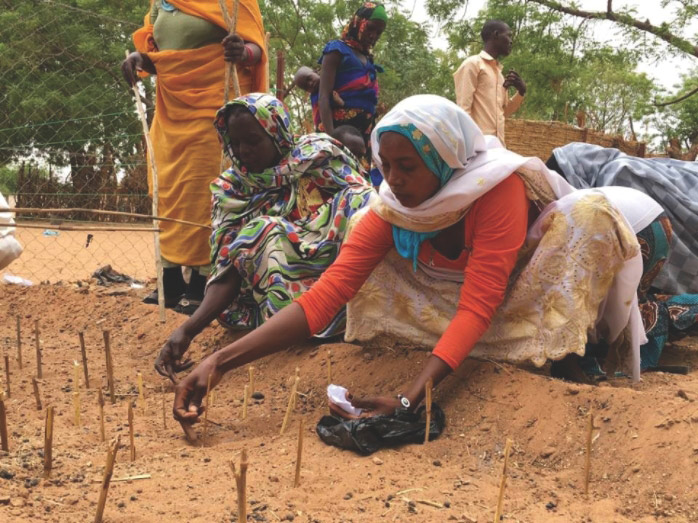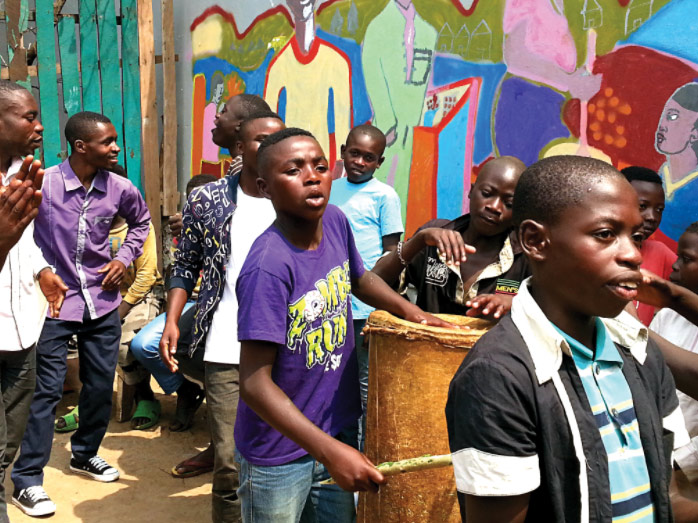


Lack of food access is one of the most critical consequences for genocide and mass atrocities survivors worldwide. A sustainable food source is needed for survival, but for refugees living far from home, it means renewed independence and a sense of community for those who can provide for their neighbors. It also means parents do not leave their families when they risk their lives when they have to venture away from the safety of their camp to forage for a meal.
Projects
![]()
Perma-gardening
Congo Peace School
A school and refuge for rescued child soldiers and sex slaves.


“A quote about the perma-gardening program to go here”
JWW’s perma-gardening program
Teaches Darfuri survivors living in Chad how to sustainably feed their families with just a small plot of dry land. The program has successfully trained over 1,000 new farmers in Eastern Chad, improving food consumption, agricultural production, their ability to save money and their mental well-being while benefiting approximately 3,300 community members. This has enabled participants and their families to increase their food consumption, diversify the food they consumed, save money, and generate income.

How You Can Help
Support Perma-Gardening
Teaching women how to sustainably feed their families with just a small plot of dry land.
Become a Monthly Donor
Your support will directly help men, women and children in need of life-saving support throughout the world.
Advocate for Legislation
Urge House leaders to support the Sudan Democratic Transition, Accountability…

Securing the release of child soldiers
Tens of thousands of children have been abducted in the Democratic Republic of the Congo and forced to serve in militias. Jewish World Watch is helping to secure the release of these boys and girls, many of whom are being used as child soldiers and sex slaves.
Continue Reading…

Rescued child soldiers participate in activities at the BVES transit center in South Kivu. Photo from BVES

